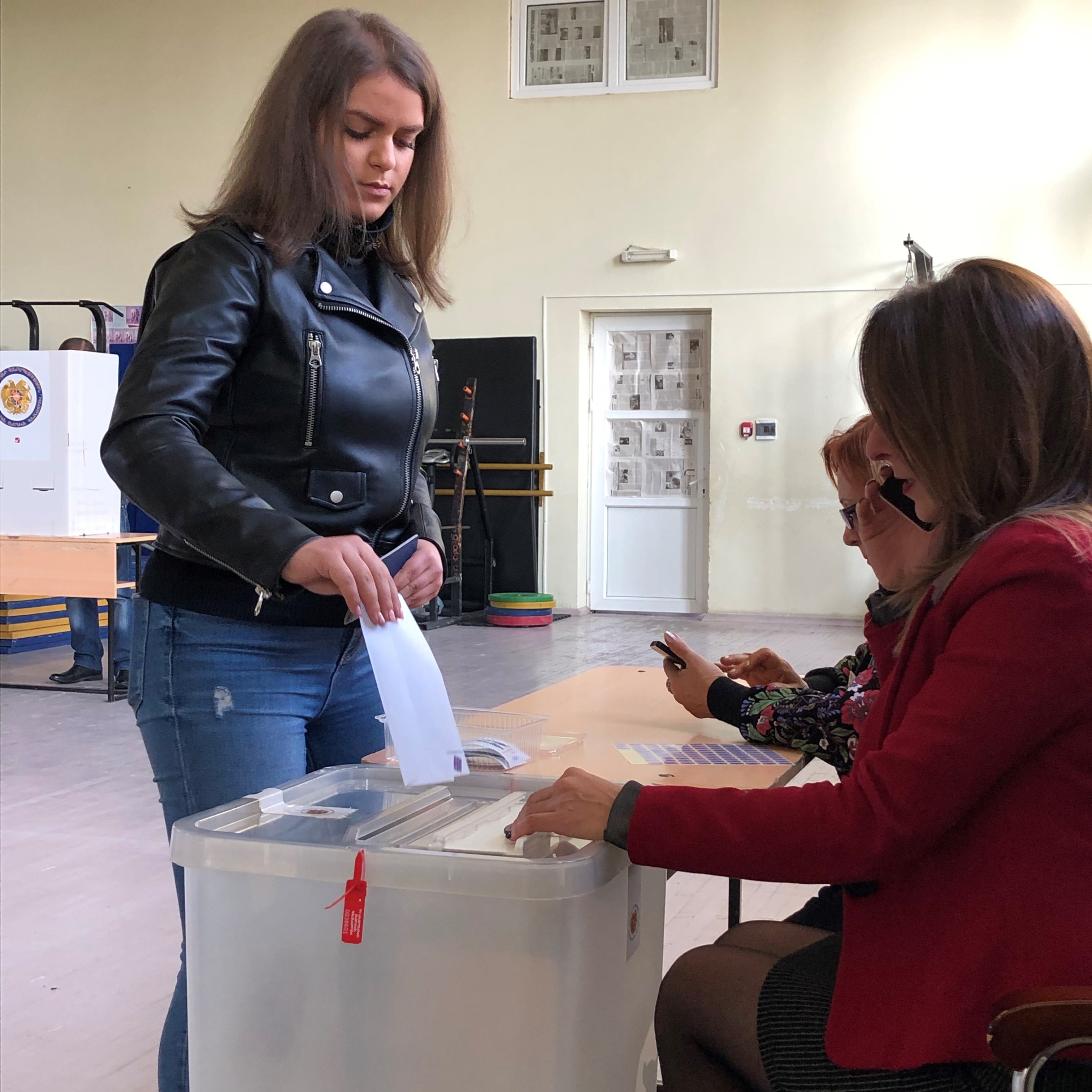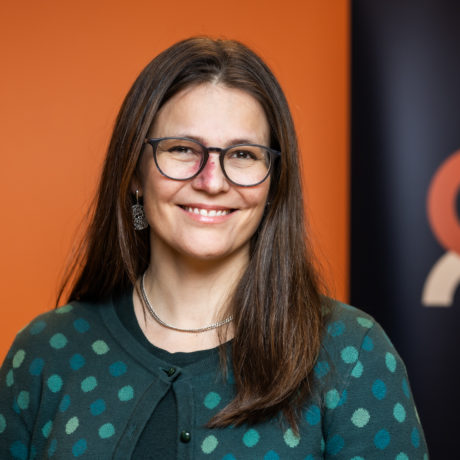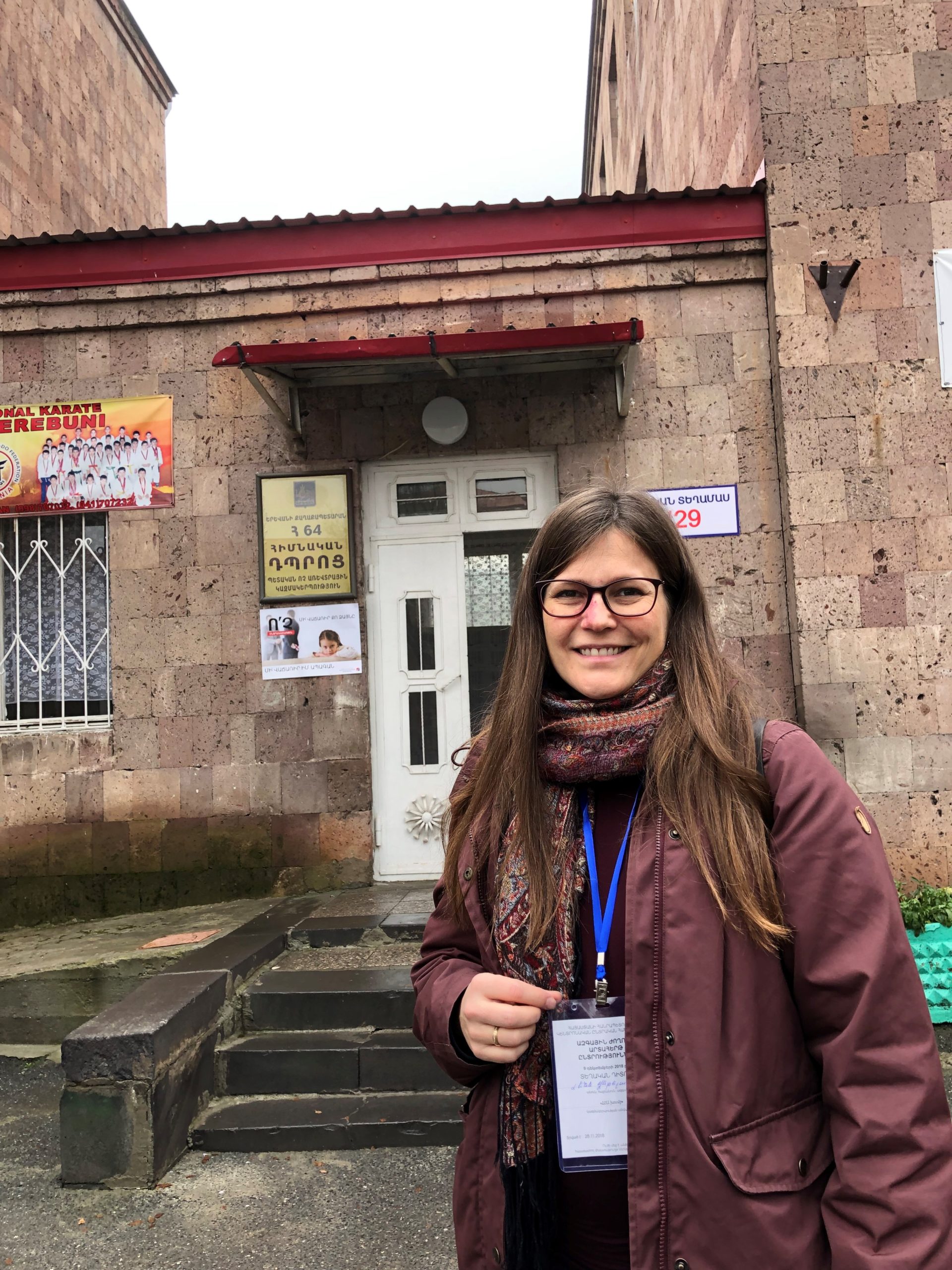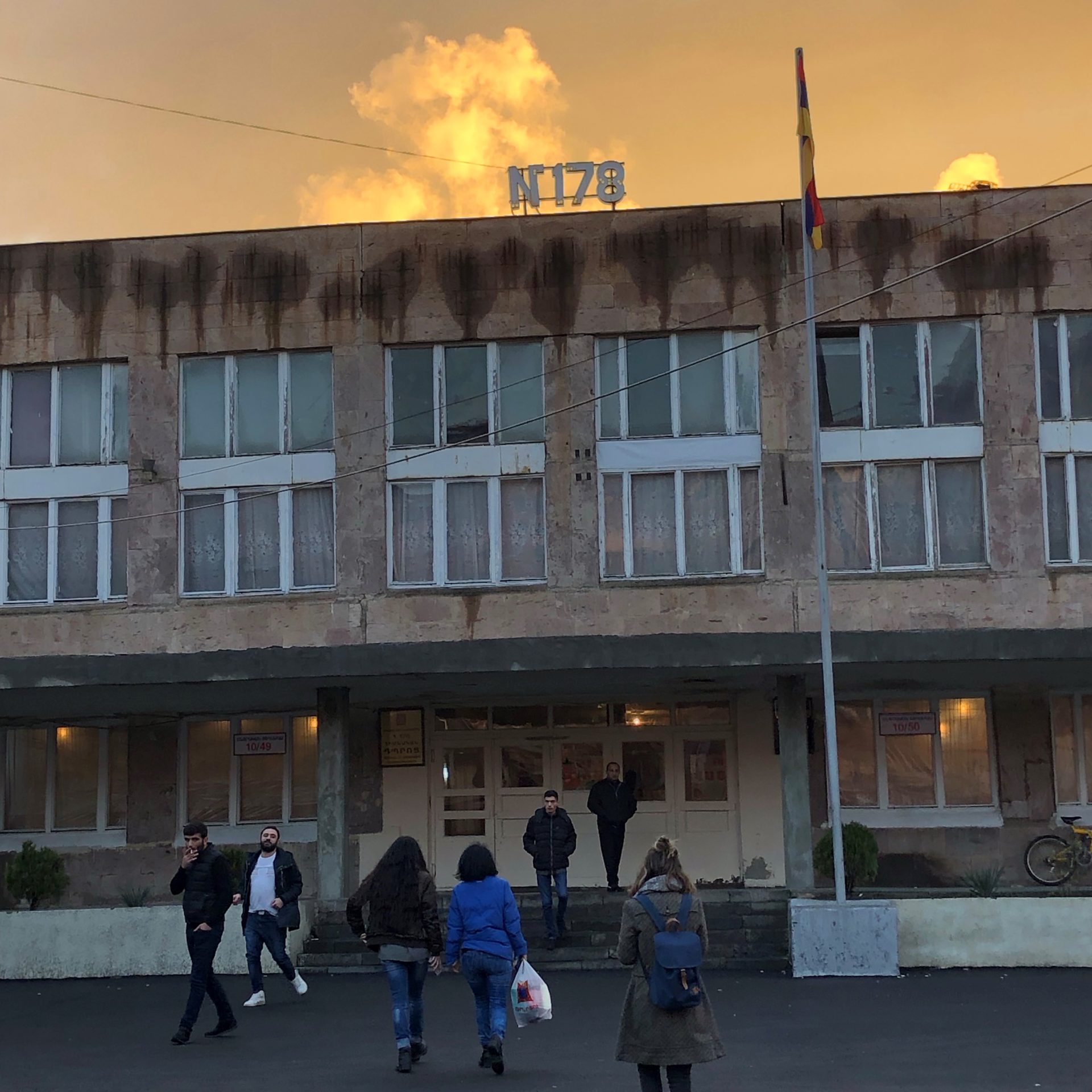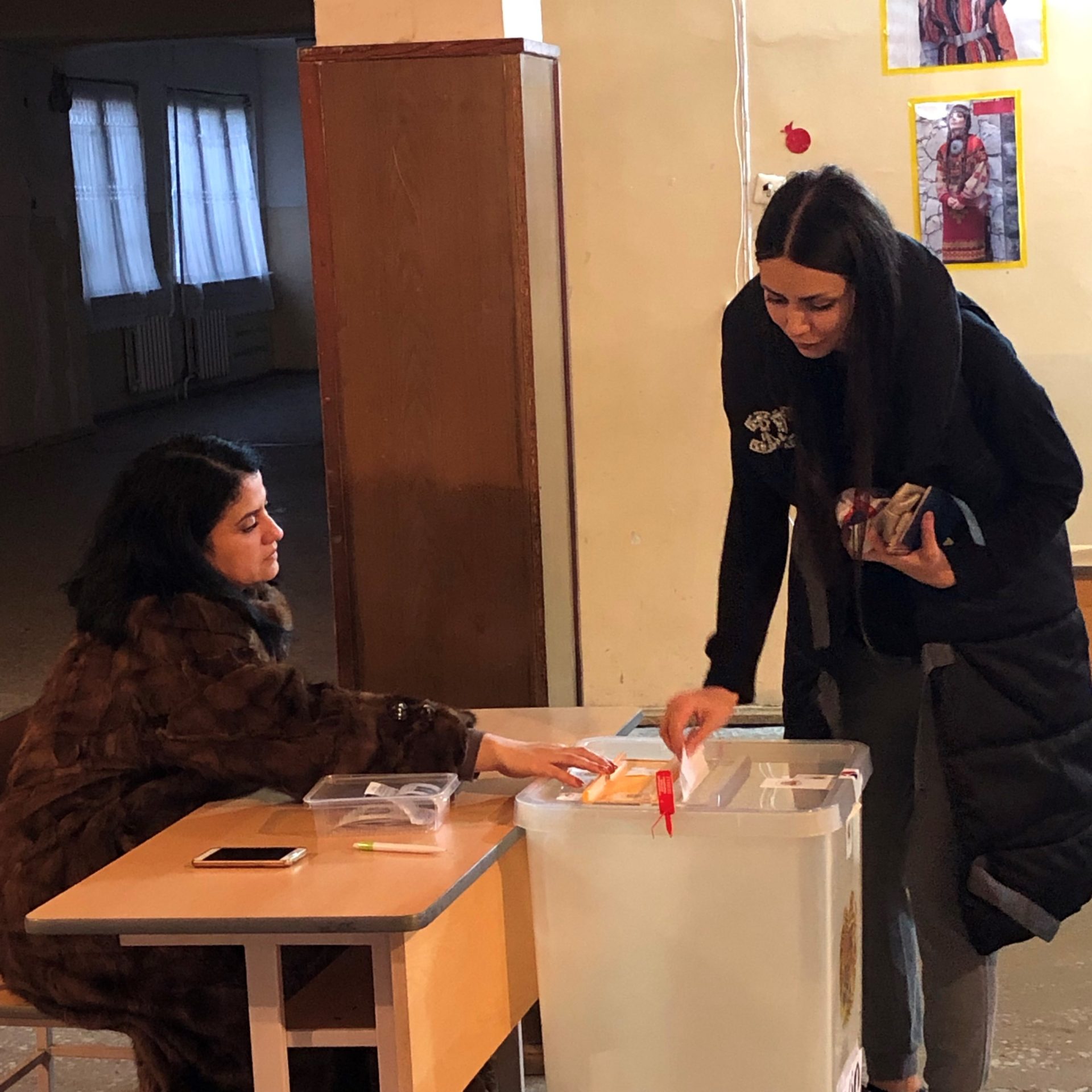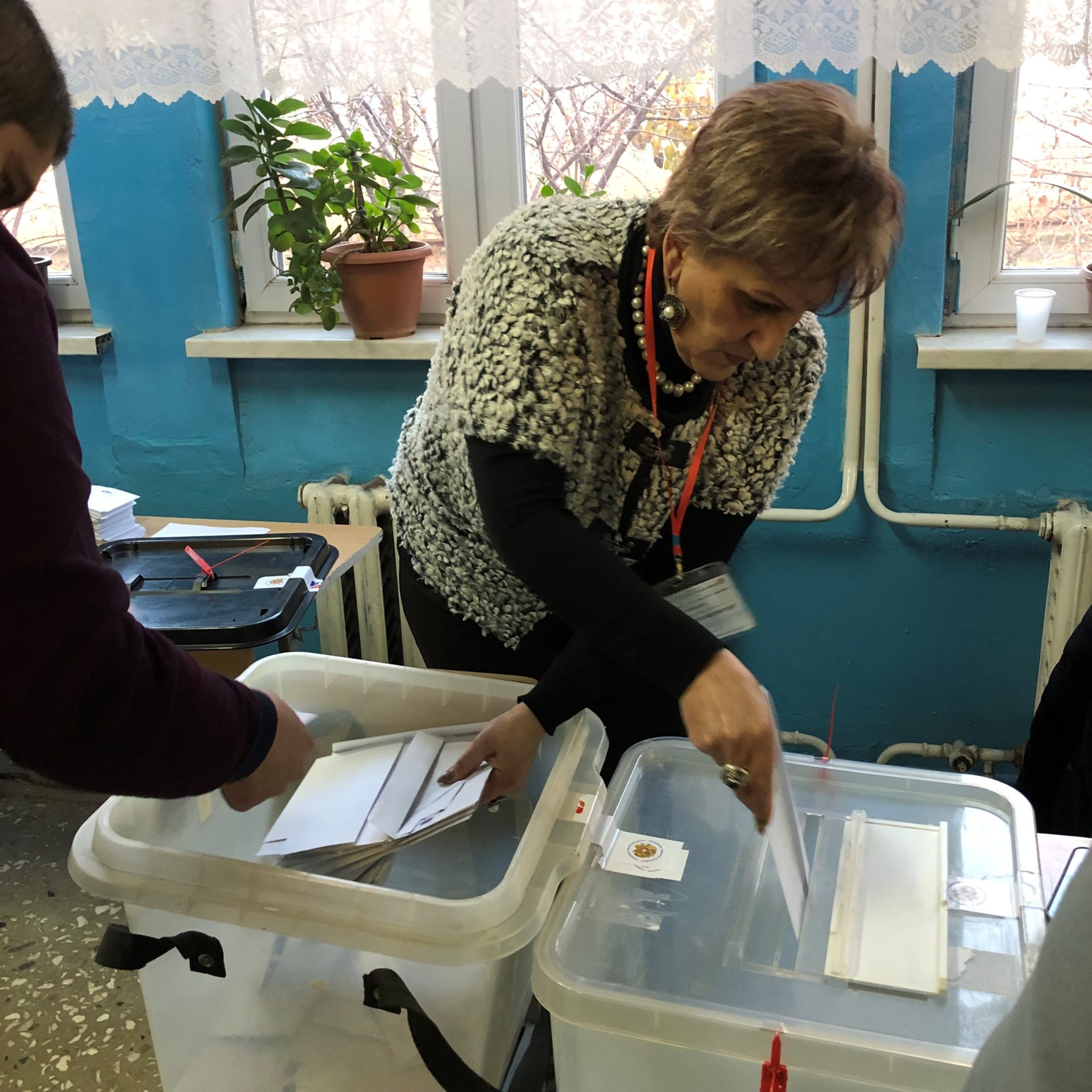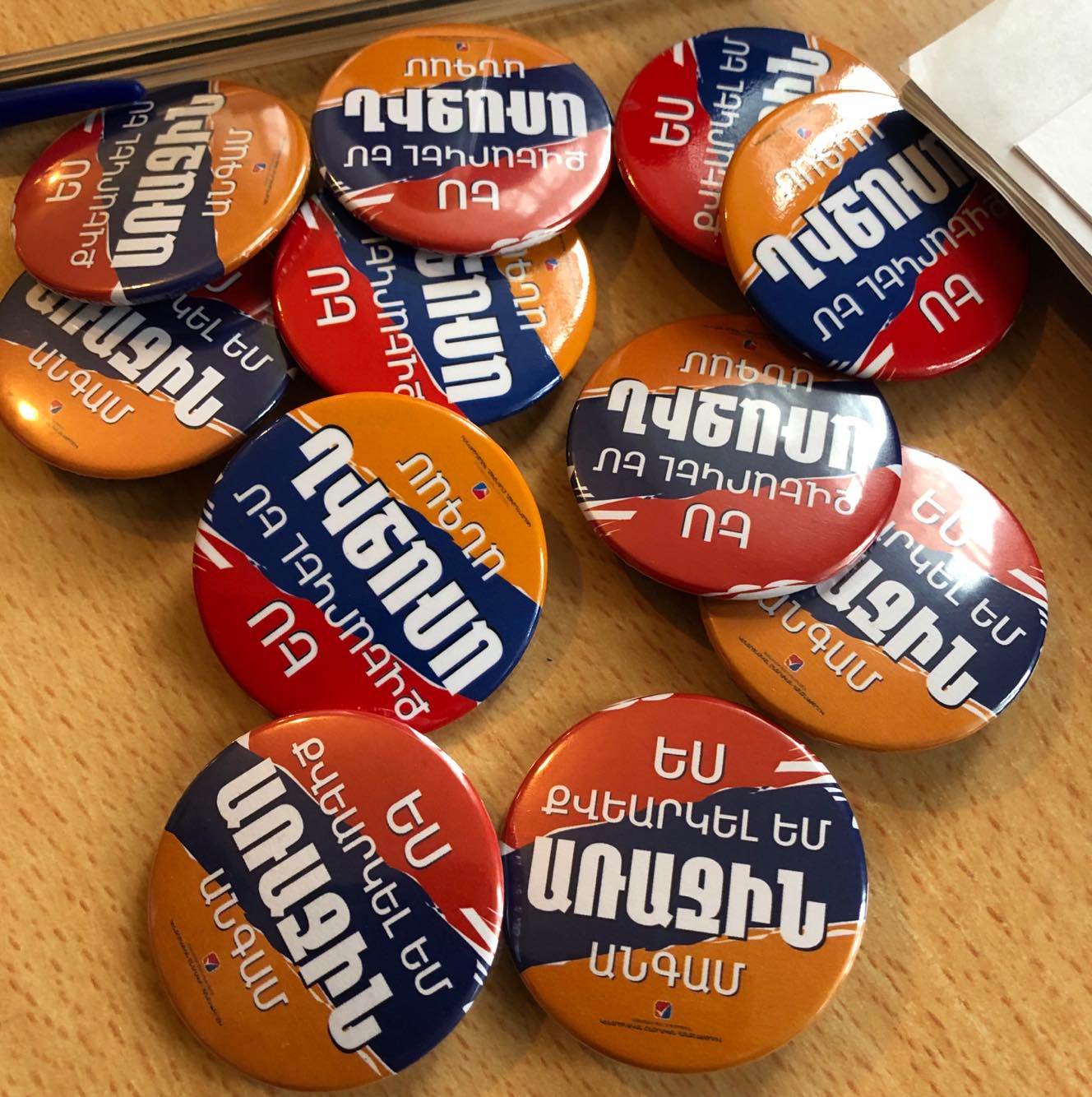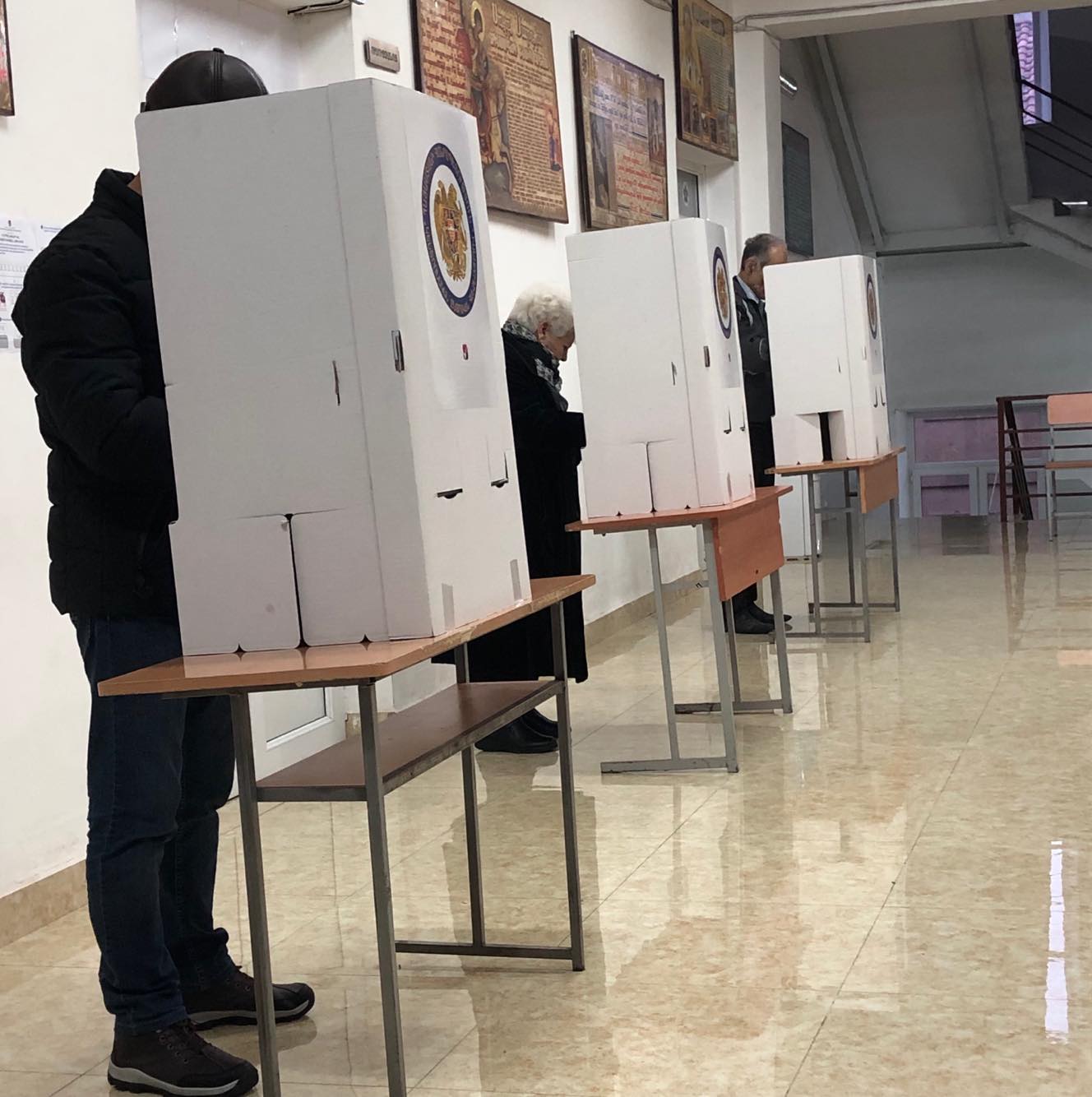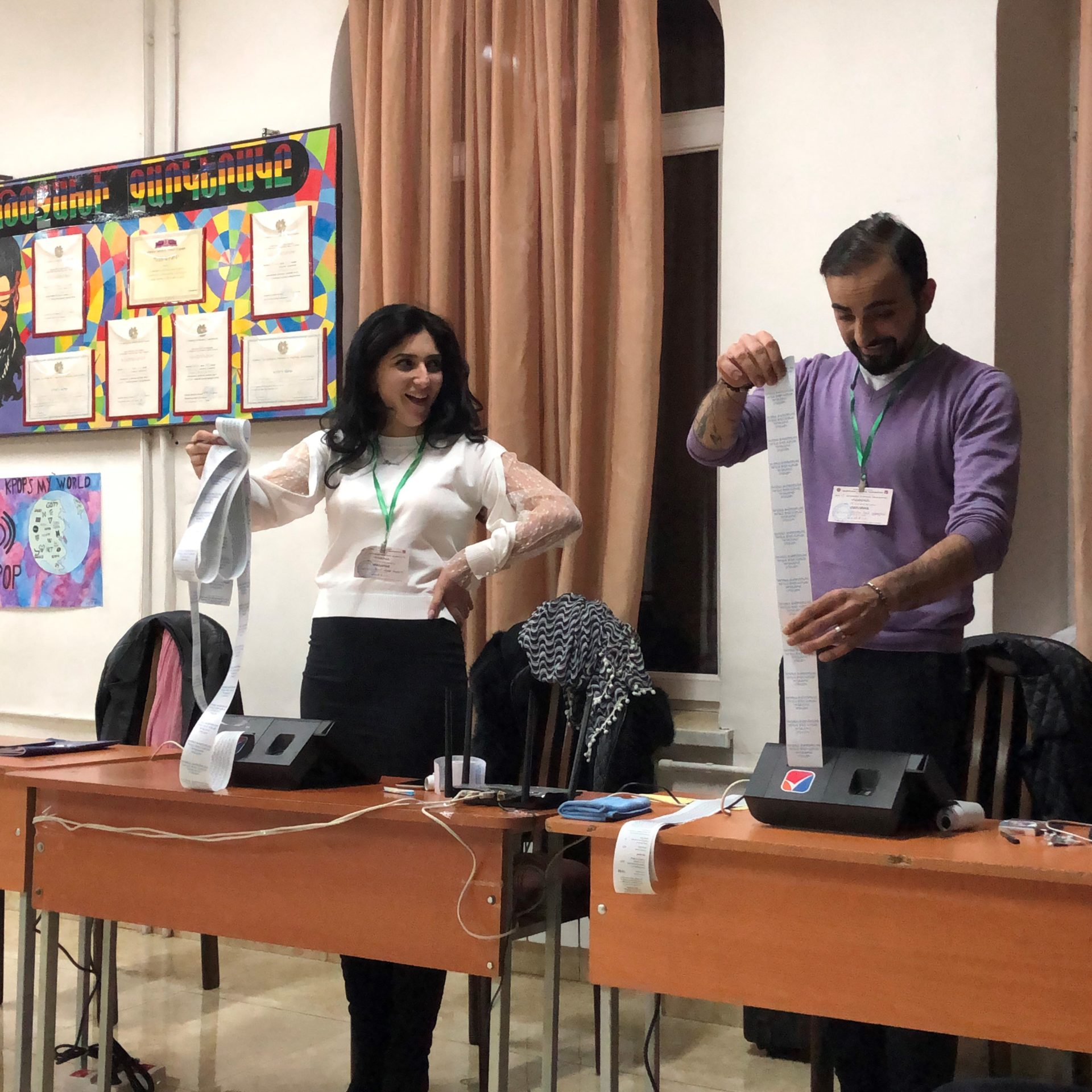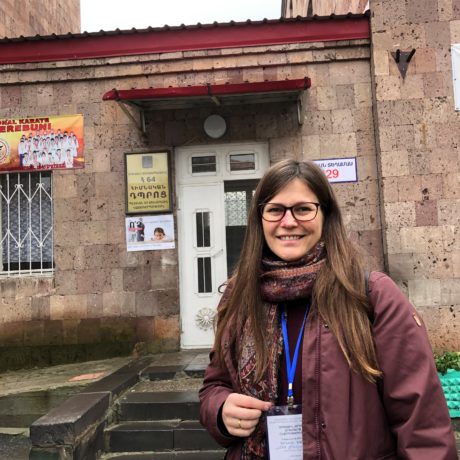There was no crowding in and around the polling stations of Yerevan this December day, but nevertheless a steady stream of people who this time came voluntarily to vote for a party they had chosen themselves after a short, but effective election campaign. I and others might have expected more signs of enthusiasm taking into consideration the revolution where hundreds of thousands took to the streets only few months ago, but it was also not unexpected that people opt to stay home when it is up to themselves to get out of the comfort of their home. But probably the most decisive reason for staying home was that there was no doubt about what the result would be.
The 48.6% turnout in a country with less than 3 million inhabitants may not be impressive, but here are several factors to take into consideration. Due to severe poverty and unemployment, many of the voters on the voter’s lists are living and working abroad and have no right to vote in accordance with Armenian law. In addition, the election fraud was so all-encompassing previously, that the artificial high turnout of more than 60 percent used for comparison was a result of coercion, threats, vote buying and carousel voting at several polling stations.
Abrupt fall for previous regime party
After voting day, it was clear that the incumbent prime minister’s party had received 70 percent of the votes. The Republicans, the party that had been in power for 20 years, with similarly high election results, now got no more than four percent and did not pass the threshold for entering the parliament. The same was the case for the Dashnaks, the nationalists who were also part of the most recent coalition and have always played a central role in Armenian politics. The new government party will be joined by oligarch Gagik Tsarukyan’s Prosperous Armenia and the fairly liberal Bright Armenia in the parliament.
The incumbent government thus did not need have to worry that the result would be anything but a success for the popular prime minister and did not need to risk anything to secure the victory. In this regard, Armenia rather joins the ranks of populist parties with a charismatic leader of popular opinions that have taken power in several European countries.
The obvious question now is where Armenia is headed from here. The elections were undoubtedly free and fair, and the absence of the election fraud so widespread previously, in particular abuse of administrative resources, coercion, threats and vote buying, allowed people to make an independent choice for the first time in Armenia’s more recent independent history.
EPDE, the European Platform for Democratic Elections, where the NHC is member along with several European organisations, conducted a statistical analysis that clearly demonstrateshow the parliamentary elections of 9 December 2018 were more democratic than the parliamentary elections of September 2017.
READ THE EPDE PRESS RELEASE FROM THE ELECTIONS
The Armenian partner organisations Helsinki Citizens’ Assembly Vanadzor and Transparency International Armenia had approximately 1500 observers in action over the whole country and made the same conclusion.
But the test as to whether Armenia has really become a full-fledged democracy starts now.
Lene Wetteland, senior adviser on Armenia in the NHC
With such a substantial majority in parliament and government, seen together with the young party culture in the country, will Pashinyan get enough resistance internally? Will representatives of his party vote independently in parliament and contribute to a constructive debate? And will the people still pay attention and hold the prime minister accountable for the promises made?
The decisive test will come with the parliament elections five years from now, when the feelings around the revolution have cooled down and day-to-day life has returned. If life has not improved considerably for the Armenians by then, it is likely that the attitude both to and from Pashinyan will change accordingly.
Civil society must take steps
But a democratic development also requires that the discussion climate will have to change in Armenia. Although there were free elections with an open political discussion, it was not necessarily unproblematic to say that one would not vote for Pashinyan. It was also difficult for the more experienced actors in civil society to bring to the table constructive criticism of the authorities. Any criticism would play right into the hands of the previous regime, and many opted not to rock the boat until the Republican party was out of parliament.
Now the time has come to be clear on where there is potential for improvement, and it is important that the civil society takes this responsibility. They must help the authorities to ensure that Armenia is better for all groups of society, including those who are not so popular with the masses, such as religious and sexual minorities, or women with their own point of view. Here it is important that the various actors in civil society receive the necessary support from the international community, and that the international community holds the Armenian authorities accountable.
Celebration and inspiration
But all this comes later, now one should take a minute to celebrate that a people characterized by passivity, resignation and deep distrust from Soviet times and recent years of independence took the situation in their own hands, threw the corrupt regime, and conducted free and fair parliamentary elections a few months later. With the political development we see in even well-established democracies around the world these days, this is far from a modest achievement and should serve as inspiration for many others.
Read the detailed reports from the NHC’s cooperation partners in Armenia: Helsinki Citizens’ Assembly Vanadzor and Transparency International Armenia.
Kontakt
Employee
